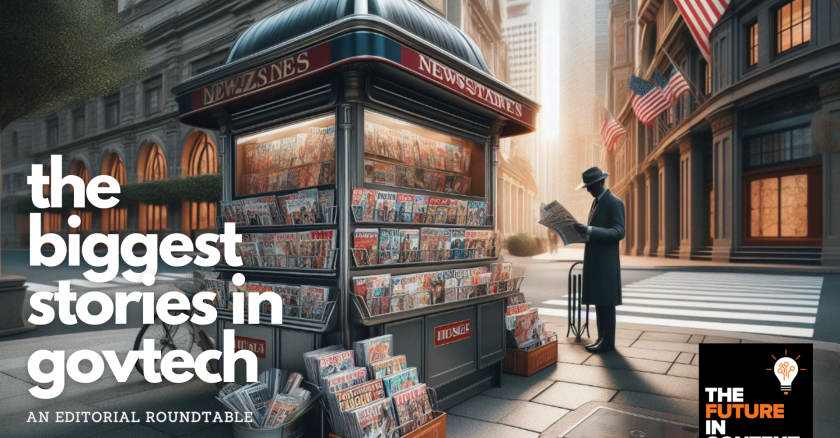There was nothing easy about it, nor was it a return to normal after the disruptive years of the pandemic, but state and local governments found ways to hold their own against persistent threats and challenges in cybersecurity and workforce issues in 2023. They also continued campaigns to refresh old IT systems and even found ways forward for urban mobility and public transit. Government Technology editors and writers — Lauren Kinkade, Zack Quaintance, Skip Descant and Jule Pattison-Gordon — joined the podcast hosts to make sense of the year that was.
Show Notes
Here are the top 10 takeaways from this episode:
- California is leading electrification with a notable rise in electric vehicle adoption;
- Transit systems in large cities across the country continue to struggle with commuter pattern shifts as new work patterns evolve after COVID-19;
- The face of micromobility changed in 2023 with a shift from city-sanctioned e-scooter programs while e-bikes gain traction due to safety and technology advancements;
- Cities are focusing on digital strategies for curb management to make best use of civic infrastructure as private-sector demand for access increases to support the rise of delivery tech, including drone delivery services and tailored vehicle choices;
- The nature of government security challenges is evolving from traditional ransomware to double extortion threats even as internal debates continue about handling demands for extortion payments;
- Legacy system modernization and broadband expansion are getting fresh looks in order to enhance government service delivery to residents and businesses that cannot be done without unlocking the unique capacity of aging big iron;
- Government faces persistent workforce challenges, particularly in tech roles, as it works to meet challenges of increasing service demands and technology advancements, all of which puts a premium on potential expansion of successful re-skilling models to other states;
- Digital equity is having a moment but there are concerns over the sustainability of these equity initiatives once initial momentum wanes;
- Speaking of having a moment, the panel noted the rapid rise of generative AI beginning in the second quarter of the year to dominate discussions about the future of government and education; and,
- Looking forward, the writers and editors identified a number of sleeper stories that will likely demand more attention in the year ahead, including the shifts in cyber crime demographics, training for local police on handling digital evidence and the real-world impacts of long-promised major infrastructure projects due to roll out in 2024.
Related links to the stories referenced in the episode:
- On the Rebound: Micromobility Ridership Continues to Climb
- Cities Experiment With Pedal-Powered Delivery Policies
- Seattle Partners on Curb Data Specification Project
- As the Cybersecurity Workforce Grows, So Does Need
- Federal Government Offers 4 Steps to Thwart Cyber Attackers
- Social Media Changes Are Impacting Government Messaging
- What’s New in Digital Equity: FCC Closer to Restoring Net Neutrality
- When You Change Social Platforms, Who Controls Your Data?
Our editors used ChatGPT 4.0 to summarize the episode in bullet form to help create the show notes. Government Technology is a sister site to Governing. Both are divisions of e.Republic.










